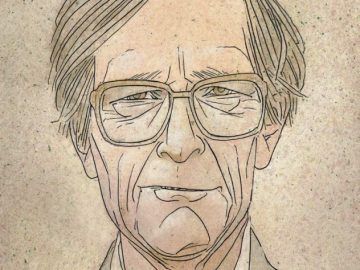Marina N. Bolotnikova in Harvard Magazine:
 John Rawls is to modern political philosophy, perhaps, what John Maynard Keynes is to economics. Many Harvard students and graduates will remember his 1971 work A Theory of Justice, mandatory reading in Bass professor of government Michael Sandel’s “Justice,” and in a number of philosophy and intellectual-history courses. Rawls famously posed the “original position,” a thought experiment in which people must decide how they would organize their ideal society without knowing what social position they will hold in it: rich or poor, man or woman, majority or minority. The late Conant University Professor trained some of the most influential philosophers in the world today. But he, and the nuances of his work, are also widely misremembered, argues assistant professor of government and social studies Katrina Forrester. Her forthcoming book, In the Shadow of Justice: Postwar Liberalism and the Remaking of Political Philosophy (Princeton University Press), excavates the complex history of Rawlsian thought, showing how his work remade political philosophy, and how philosophers today grapple with contemporary problems in Rawls’s shadow.
John Rawls is to modern political philosophy, perhaps, what John Maynard Keynes is to economics. Many Harvard students and graduates will remember his 1971 work A Theory of Justice, mandatory reading in Bass professor of government Michael Sandel’s “Justice,” and in a number of philosophy and intellectual-history courses. Rawls famously posed the “original position,” a thought experiment in which people must decide how they would organize their ideal society without knowing what social position they will hold in it: rich or poor, man or woman, majority or minority. The late Conant University Professor trained some of the most influential philosophers in the world today. But he, and the nuances of his work, are also widely misremembered, argues assistant professor of government and social studies Katrina Forrester. Her forthcoming book, In the Shadow of Justice: Postwar Liberalism and the Remaking of Political Philosophy (Princeton University Press), excavates the complex history of Rawlsian thought, showing how his work remade political philosophy, and how philosophers today grapple with contemporary problems in Rawls’s shadow.
To understand Rawls’s impact, it’s important to understand the state of political philosophy before him.
More here.
